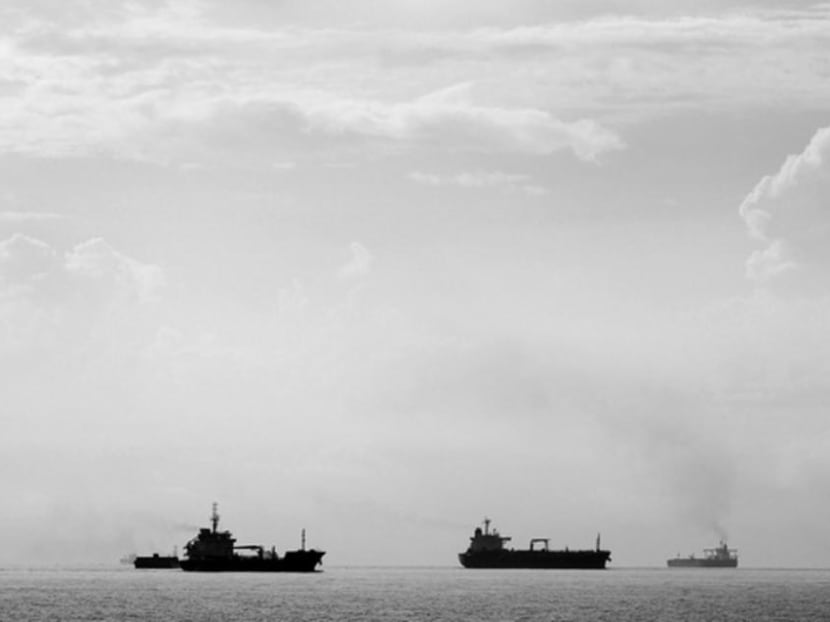Surge in piracy incidents in Singapore Strait a cause for concern for maritime safety in the region
SINGAPORE — While the year-end festivities were in full speed in December last year, knife-wielding pirates attacked six ships in the eastbound lane of the Singapore Strait, in the waters surrounding Singapore, Johor, Batam and Bintan, over a span of six days.

The strait saw a surge in the number of piracy and armed robbery incidents against ships in the last year, from seven in 2018 to 31 in 2019.
SINGAPORE — While the year-end festivities were in full speed in December last year, knife-wielding pirates attacked six ships in the eastbound lane of the Singapore Strait, in the waters surrounding Singapore, Johor, Batam and Bintan, over a span of six days.
The strait saw a surge in the number of piracy and armed robbery incidents against ships in the last year, from seven in 2018 to 31 in 2019.
As a comparison, there were eight incidents reported in 2017, two in 2016 and 99 in 2015.
ReCAAP assistant director for research Lee Yin Mui attributed the spike in both 2015 and 2019 to lower enforcement and complacency among onboard crews.
A stolen engine, generator spares and an engineer’s gold chain were among their loot, although the pirates left empty-handed in most of the attacks, the Regional Cooperation Agreement on Combating Piracy and Armed Robbery against Ships in Asia (ReCAAP) Information Sharing Centre said at a media briefing on Wednesday (Jan 15).
ReCAAP also saw an increase in the number of armed robbery and piracy cases in Asia last year: There were 82 reported incidents, up from 76 in 2018.
The executive director of the centre, Mr Masafumi Kuroki, said that despite the increase, the 2019 figure is still an improvement from the figures in the last 13 years since ReCAAP started collecting reports of piracy incidents.
He added that this increase calls for the region to step up the fight against piracy in the Singapore Strait.
The states that manage the waters in the strait are Singapore, Indonesia and Malaysia.
“Regional cooperation among coastal states and mutual cooperation between government agencies and the shipping industry are key to ensure the safety of seafarers and safe navigation of ships,” said Mr Kuroki.
Asked whose territorial waters the incidents in 2019 occurred in, Mr Kuroki said it is difficult to identify the country as both the ships and perpetrators were constantly crossing territorial borders.
But Mr Ridzwan Rahmat, principal defence analyst at defence consultancy Jane’s, said they likely took place in Indonesian waters.
WHY THE SPIKE IN PIRATE ATTACKS?
Mr Ridzwan attributed the increase in pirate attacks to the lack of enforcement by the Indonesian navy while it was reorganising its fleet of patrol boats from late 2018 through most of 2019.
He pointed out that previously, coast guards from different territories would coordinate to ensure the blind spots are minimised, but the coordination was missing since the reshuffle.
Mr Ridzwan added that with the rising tensions in the North Natuna Sea between China and Indonesia, it is highly likely that Indonesia would prioritise the deployment of its fleet to the territorial standoff, and commit fewer resources to the Singapore Strait.
With the tension still brewing, more pirate attacks can be expected in 2020, he said.
Ms Lee said that pirates tend to mount consecutive attacks.
“That’s the way they operate. If they can’t rob one (ship), they try another. In fact, in 2015, there was one occasion where they tried to rob three ships in one night,” said Ms Lee.
She added that increased enforcements have been successful in the past and attributed the fall in incidents reported in 2016 to the arrests made in 2015.
ReCAAP said in 2015, the Indonesian authorities reportedly arrested 14 pirates in total on three occasions but there are likely to be unreported ones.
In August 2019, an arrest made in the westbound lane of the Singapore Strait was also a successful deterrent. For the rest of the year, there was only one more incident in that area.
Mr Ridzwan said the states that manage the strait should work on an arrangement that allows patrol ships to cross territorial waters when chasing perpetrators.
“When the Singapore coast guard sees the perpetrator, for example, there is only a certain distance it can chase. The moment the perpetrator crosses the territorial line, it stops chasing, no matter what happens,” he said.
He added: “We are going against an enemy that does not respect maritime boundaries.”
MEETING OF REPRESENTATIVES FROM DIFFERENT STATES
The Ministry of Defence said in a press release that representatives from Singapore, Malaysia, Thailand and Indonesia met on Wednesday to discuss the recent spike in sea robberies in the Singapore Strait.
The two-day 14th Malacca Straits Patrol Joint Coordinating Committee Meeting, hosted by the Republic of Singapore Navy (RSN), explored ways to strengthen information sharing and operational coordination to deter and disrupt sea robberies within the respective territorial waters.
RSN’s Head of Naval Operations Edwin Leong said: “The Straits of Malacca and Singapore are critical and strategic waterways. It is therefore in everyone’s interest to secure the maritime safety of the vessels passing through this busy waterway.”
In a Facebook post on Wednesday, Minister for Transport Khaw Boon Wan expressed his concerns on maritime safety in the Straits of Malacca and Singapore.
“First, the Straits of Malacca and Singapore is a busy waterway and an important lifeline to many countries. Second, the region is developing the cruise industry which has huge potential,” he wrote, adding that ensuring maritime safety is, therefore, a priority for all involved.








